Filter by

A Divided Republic Nation, State and Citizenship in Contemporary France
This book is an original and sophisticated historical interpretation of contemporary French political culture. Until now, there have been few attempts to understand the political consequences of the profound geopolitical, intellectual and economic changes that France has undergone since the 1970s. However, Emile Chabal's detailed study shows how passionate debates over citizenship, immigration,…
- Edition
- -
- ISBN/ISSN
- 9781107447936
- Collation
- -
- Series Title
- -
- Call Number
- -
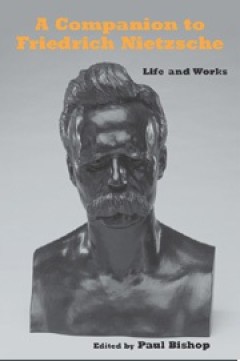
A Companion to Friedrich Nietzsche: Life and Works
Nietzsche looms over modern literature and thought; according to Gottfried Benn, 'everything my generation discussed, thought through innerly; one could say: suffered; or one could even say: took to the point of exhaustion - all of it had already been said . . . by Nietzsche; all the rest was just exegesis.' Nietzsche's influence on intellectual life today is arguably as great; witness the vari…
- Edition
- -
- ISBN/ISSN
- 9781571137739
- Collation
- -
- Series Title
- -
- Call Number
- -
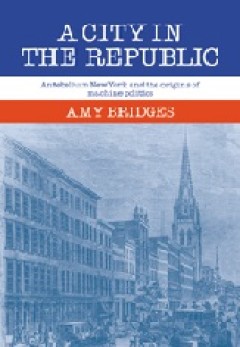
A City in the Republic: Antebellum New York and the Origins of Machine Politics
This study of the emergence of machine politics in New York City during the antebellum years sheds light on the origins of a system that was the characteristic form of government in United States cities from the mid-nineteenth until well into the twentieth century. In contrast to previous explanations that have found the origins of machine politics in immigrant culture and ethnic conflict, Prof…
- Edition
- -
- ISBN/ISSN
- 9780511895920
- Collation
- -
- Series Title
- -
- Call Number
- -

Carmen Abroad: Bizet's Opera on the Global Stage
From the 'old world' to the 'new' and back again, this transnational history of the performance and reception of Bizet's Carmen – whose subject has become a modern myth and its heroine a symbol – provides new understanding of the opera's enduring yet ever-evolving and resituated presence and popularity. This book examines three stages of cultural transfer: the opera's establishment in the r…
- Edition
- -
- ISBN/ISSN
- -
- Collation
- -
- Series Title
- -
- Call Number
- -
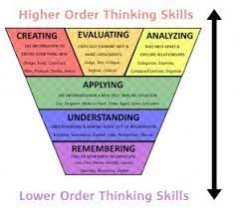
Education Skills for 21st Century Teachers
This monograph presents the current views, challenges and future needs of educators from a global online exchange where educators and researchers discuss the 21st century skills needed by students and teachers. The three editors, who participated in the global online research discussion group, also assumed the role of authors to summarise, analyse and celebrate the myriad of ideas generated in …
- Edition
- 1
- ISBN/ISSN
- 978-3-319-22607-1
- Collation
- -
- Series Title
- -
- Call Number
- XVII, 114
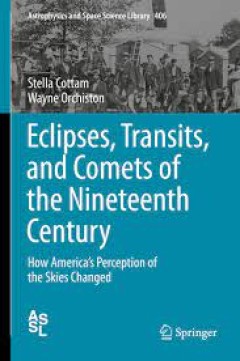
Eclipses, Transits, and Comets of the Nineteenth Century
Grabbing the attention of poets, politicians and the general public alike, a series of spectacular astronomical events in the late 1800s galvanized Americans to take a greater interest in astronomy than ever before. At a time when the sciences were not yet as well established in the United States as they were in Europe, this public interest and support provided the growing scientific community …
- Edition
- 1
- ISBN/ISSN
- 978-3-319-08340-7
- Collation
- -
- Series Title
- -
- Call Number
- XI, 336
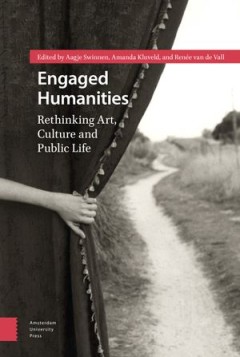
Engaged Humanities Rethinking Art, Culture, and Public Life
What is the role of the humanities at the start of 21st century? In the last few decades, the various disciplines of the humanities (history, linguistics, literary studies, art history, media studies) have encountered a broad range of challenges, related to the future of print culture, to shifts in funding strategies, and to the changing contours of culture and society. Several publications hav…
- Edition
- -
- ISBN/ISSN
- 9789048550401
- Collation
- -
- Series Title
- -
- Call Number
- -
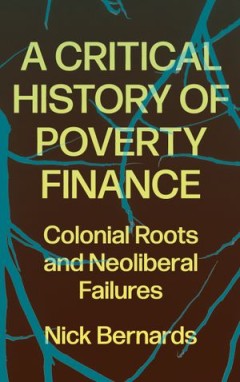
A Critical History of Poverty Finance : Colonial Roots and Neoliberal Failures
'The definitive account of the history of poverty finance' - Susanne Soederberg Finance, mobile and digital technologies - or 'fintech' - are being heralded in the world of development by the likes of the IMF and World Bank as a silver bullet in the fight against poverty. But should we believe the hype? A Critical History of Poverty Finance demonstrates how newfangled 'digital financial …
- Edition
- -
- ISBN/ISSN
- 9780745344867
- Collation
- -
- Series Title
- -
- Call Number
- -
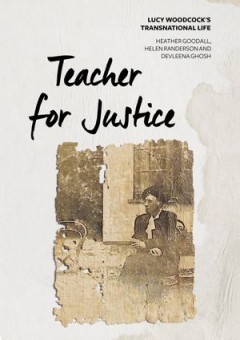
Teacher for Justice Lucy Woodcock's Transnational Life
"‘Teacher for Justice is a major contribution to the history of the women’s movement, working‑class activism and Australian political internationalism. But it is more than this. By focusing on the life of Lucy Woodcock – an unrecognised and under-researched figure – this book rewrites the history of twentieth-century Australia from the perspective of an activist who challenged convent…
- Edition
- -
- ISBN/ISSN
- 9781760463045
- Collation
- -
- Series Title
- -
- Call Number
- -
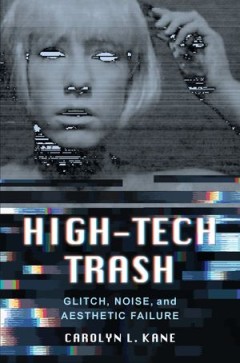
High-Tech Trash : Glitch, Noise, and Aesthetic Failure
High-Tech Trash analyzes creative strategies in glitch, noise, and error to chart the development of an aesthetic paradigm rooted in failure. Carolyn L. Kane explores how technologically influenced creative practices, primarily from the second half of the twentieth and first quarter of the twenty-first centuries, critically offset a broader culture of pervasive risk and discontent. In so doing,…
- Edition
- -
- ISBN/ISSN
- 9780520974494
- Collation
- -
- Series Title
- -
- Call Number
- 700.1 KAN h
 Computer Science, Information & General Works
Computer Science, Information & General Works  Philosophy & Psychology
Philosophy & Psychology  Religion
Religion  Social Sciences
Social Sciences  Language
Language  Pure Science
Pure Science  Applied Sciences
Applied Sciences  Art & Recreation
Art & Recreation  Literature
Literature  History & Geography
History & Geography